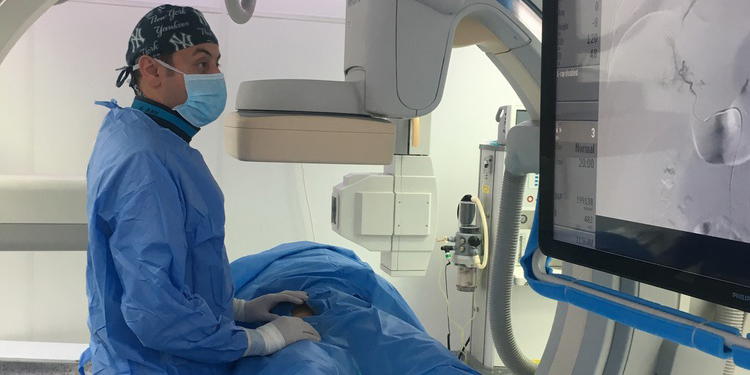
Overview
What is Deep Vein Thrombosis (DVT)?
Deep Vein Thrombosis (DVT) is a medical condition characterized by the formation of blood clots within the deep veins, typically in the legs. These clots can pose serious risks if they break loose and travel to the lungs, causing a condition known as pulmonary embolism.
DVT can lead to symptoms such as swelling, pain or tenderness, warmth, and redness in the affected leg. The risk factors for DVT include prolonged immobility, recent surgery or injury, genetic predisposition, cancer, smoking, and certain medications like hormonal birth control.
Diagnosis often involves imaging tests like ultrasound and blood tests to confirm the presence of a blood clot. Early detection and medical intervention are crucial to prevent complications and ensure proper management of DVT. If you experience symptoms or have risk factors, seek prompt medical attention.
Symptoms of Deep Vein Thrombosis (DVT):
- Swelling: Typically in one leg, often starting in the calf.
- Pain or Tenderness: Discomfort in the affected leg, especially when standing or walking.
- Warmth and Redness: Over the area where the clot is located.
- Worsening Swelling: Especially noticeable when standing or walking.
Causes and Diagnoses of Deep Vein Thrombosis (DVT)
Causes of Deep Vein Thrombosis (DVT):
- Prolonged Immobility: Extended periods of sitting or bed rest.
- Recent Surgery or Injury: Especially involving the lower limbs.
- Genetic Predisposition: Family history of blood clotting disorders.
- Medical Conditions: Cancer, heart disease, and inflammatory disorders.
- Smoking: Increases the risk of blood clots.
- Hormonal Medications: Such as birth control pills.
Diagnoses of Deep Vein Thrombosis (DVT):
- Ultrasound: Commonly used to visualize blood flow and detect clots.
- D-dimer Test: Measures a substance released when a blood clot breaks up.
- CT or MRI Venography: Provides detailed images of blood vessels.
- Blood Tests: Assess clotting factors and genetic markers.
If you suspect DVT or have risk factors, prompt medical evaluation is crucial for accurate diagnosis and timely intervention.
Treatments for Deep Vein Thrombosis (DVT):
Effective management of Deep Vein Thrombosis (DVT) typically involves a combination of medical interventions and lifestyle changes:
- Anticoagulant Medications: Also known as blood thinners, these drugs prevent the clot from growing larger and reduce the risk of new clots forming.
- Thrombolytic Therapy: In certain cases, clot-dissolving medications may be used to quickly break down a large clot.
- Compression Stockings: These specially designed stockings help prevent swelling and reduce the risk of complications.
- Elevating the Leg: Keeping the affected leg elevated when possible can assist in reducing swelling.
- Physical Activity: Engaging in regular, low-impact activities helps promote blood circulation and prevents clot formation.
- Inferior Vena Cava (IVC) Filter: For individuals unable to take blood thinners, a filter may be placed in the vena cava to catch clots before they reach the lungs.
Medications for Deep Vein Thrombosis (DVT):
Anticoagulants (Blood Thinners): Anticoagulants are crucial in treating DVT. They prevent existing blood clots from growing larger and deter the formation of new clots. It's important to note that they don't dissolve existing clots; instead, the body gradually absorbs the clot over time. Initially, a combination of intravenous and oral anticoagulants may be prescribed, but the need for both may diminish as the oral medication becomes effective. Regular blood tests, like the International Normalized Ratio (INR), may be necessary to ensure the correct dosage.
Side Effects: The most common side effect is bleeding. Discuss potential side effects with your physician or pharmacist.
Thrombolytic Therapy: In specific situations, thrombolytic medications may be employed to dissolve blood clots. These medications are typically administered through a catheter into the veins.
Take the next step towards managing your Deep Vein Thrombosis (DVT). Schedule a consultation with Dr. Mohamed Hosni, a distinguished specialist in vascular care. Dr. Hosni's expertise ensures personalized and effective treatment, prioritizing your well-being. Book your appointment now to explore tailored solutions for your vascular health.
